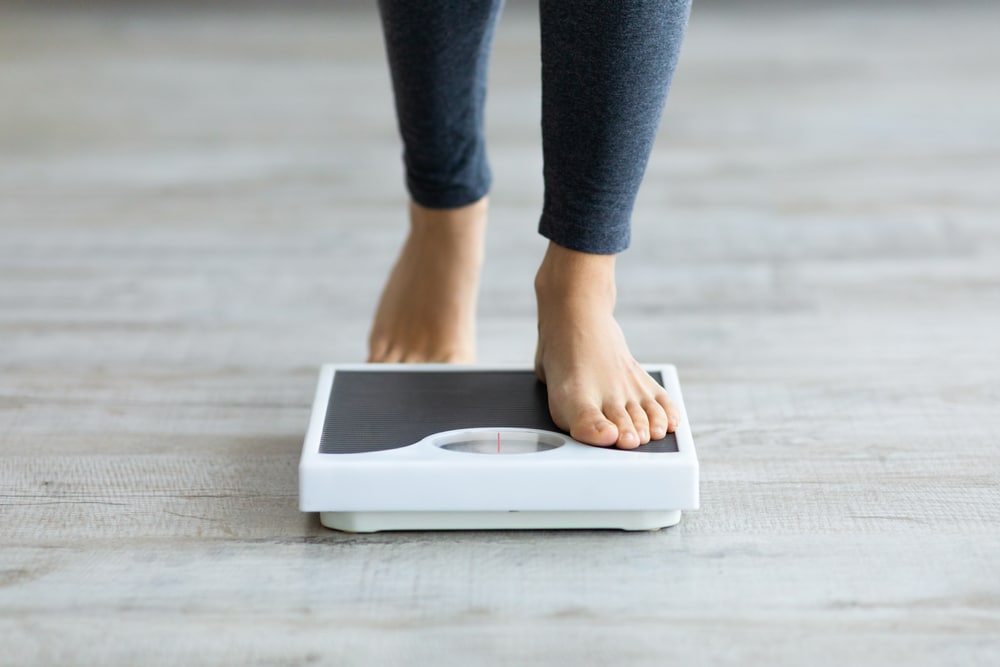
Introduction
Menopause—typically diagnosed after you’ve gone 12 months without a period—can occur in your 40s or 50s, but the average age is 51 for women in the United States. For many women, menopausal weight gain is a real issue. Fortunately, It’s normal! But with the right diet, lifestyle, and menopause supplements, it doesn’t have to be.
Factors Contributing to Menopausal Weight Gain
A change in metabolism is one of the biggest culprits. During menopause, the loss of estrogen and progesterone that occurs creates metabolic changes in the body, including decreased muscle mass. This leads to fewer calories burned, which means the potential for more body fat.
Can Menopause Weight Gain Change Your Body Shape?
It is common for menopausal weight gain to affect your body shape. Research shows that weight gain during menopause can cause significant shifts in body composition. You are also more likely to gain belly fat, leading some women to transition from a pear-shaped figure to an apple-shaped figure.
The Best Supplements for Menopausal Weight Gain
Mounting studies show that vitamin D can aid in weight loss. Research has found that those with higher body fat tend to have lower blood levels of vitamin D compared with those of a healthier weight. Vitamin D comes with an array of other benefits, including:
- Supporting bone health
- Boosting immune function
- Improving mood
Calcium is known as the bone health super vitamin! With age (and menopause) comes the breaking down of bone tissue faster than it can be built, which makes this mineral vital for maintaining the normal functioning of muscles and nerves. Research suggests that higher calcium intake, in addition to vitamin D, may be associated with lower body weight and better metabolic health.

Do you suffer from leg cramps, fatigue, migraines, sleep issues, weakness, nausea, or loss of appetite? If you have one or more of these symptoms, you could be suffering from magnesium deficiency. Magnesium helps keep your bones strong and combats your increased risk of osteoporosis. It can also improve sleep, support heart health, and reduce your risk of depression. Research shows that higher magnesium intake helps better control insulin resistance and glucose blood levels—two factors that can contribute to weight gain.
B vitamins are water-soluble, incredibly powerful, and full of health benefits—especially during menopause! Some studies suggest adequate vitamin B12 levels may be associated with a lower risk of weight gain and obesity.
Collagen makes up about 30 percent of your total body protein and 70 to 80 percent of your skin. It supports skin elasticity while keeping it supple and firm while also making your nails strong and shiny. Taking a collagen supplement is a great way to counter the collagen loss that occurs during menopause. Collagen may also help relieve joint pain, help you feel fuller, and eat less—two essential ways to improve weight loss.
Omega-3 fatty acids are important for regulating blood clotting and inflammation. Some research suggests they may reduce the symptoms of major depressive disorders and hot flashes in menopausal women. It also suggests that fish oil, a type of omega-3 supplement, may burn fat and help with weight loss—thus helping with menopausal weight gain.
Vitamin C is water-soluble and aids in collagen production. Moreover, those who are deficient in vitamin C may be more resistant to fat loss!

Conclusion
Your hormones impact so many things—from your mood and energy levels to your weight. When you are deficient or dominant in any one hormone, it’s easier to gain weight. This is particularly true for women who are experiencing hormonal imbalances caused by the natural aging process. If you’re someone struggling with weight loss, you might benefit from understanding your hormone levels and trying these natural ways to balance your hormones.
Remember to consult your healthcare provider before starting a supplement regimen. With the right combination of supplements, a healthy diet, and regular exercise, you can manage menopausal weight gain and feel your best during this stage of life.
Read More:
- Balance These 4 Hormones for Weight Loss
- Collagen Protein vs. Whey Protein: What’s Right For You?
- The Best Core Exercises for Seniors

*** Our sponsor is dear to us *** |
| [TAG4]
Image Credit: Stacy Robinson / AuthorsUSA.com |
By: Chris Freytag, CPT
Title: Managing Menopausal Weight Gain: The Best Supplements to Try
Sourced From: gethealthyu.com/supplements-help-fight-off-menopausal-weight-gain/
Published Date: Fri, 15 Dec 2023 12:47:00 +0000
 HealthWellnessFitnessBeautyVideosPrivacy PolicyTerms And Conditions
HealthWellnessFitnessBeautyVideosPrivacy PolicyTerms And Conditions
